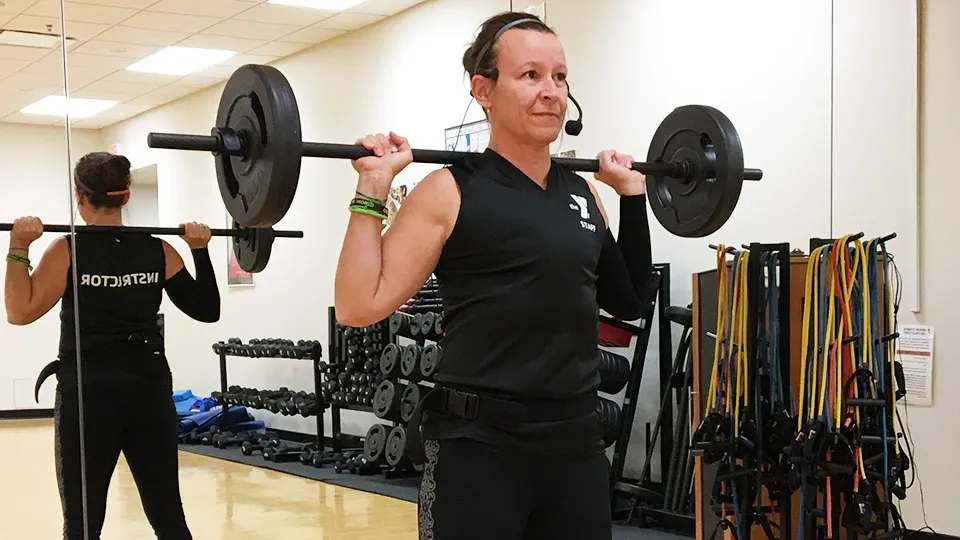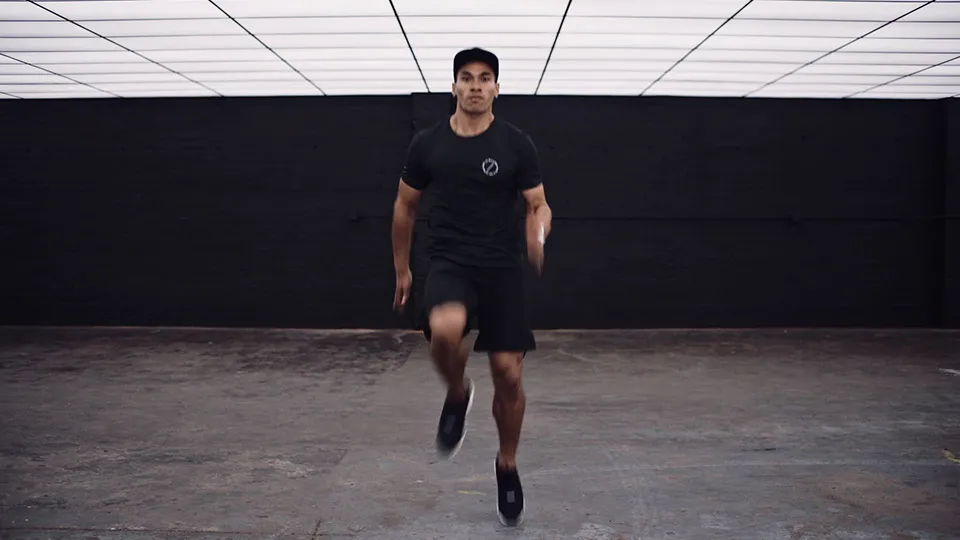Cardio Peak Training

The popularity of strength training is soaring, but is a love of lifting curtailing your commitment to cardio? A significant new study reveals how dropping cardio could prove disastrous for your health.
It’s no surprise that strength training is a top trend right now. Lifting weights makes you feel strong and powerful, and delivers a wealth of other benefits too … but maintaining a well-balanced routine is essential. And that means keeping cardio a regular fixture on your training schedule.
Cardio exercises like running, cycling and aerobic workouts are commonly linked to burning calories, helping lower blood pressure and enabling the heart and lungs to function more efficiently. But surprisingly, the bigger picture health benefits of cardio have not been comprehensively explored. Until now.
Cardiovascular fitness is probably the most important type of fitness for good health.
Australian researchers have collated all the scientific evidence linking cardio fitness and overall health by delving into 26 systematic reviews and completing a meta-analysis of over 20.9 million observations from 199 unique cohort studies. What they found spells out why maintaining cardiovascular fitness is a must.

Low levels of cardiorespiratory fitness are strongly linked to increased likelihood of chronic conditions such as heart failure, depression, diabetes, dementia, or even early death.
The study shows low levels of cardiorespiratory fitness are strongly linked to increased likelihood of suffering from chronic conditions such as heart failure, depression, diabetes, dementia, or even early death. Professor Grant Tomkinson, the senior author of the study, says it highlights how cardiovascular fitness is probably the most important type of fitness for good health.
"The message is quite simple: if you do a lot of "huff and puff" exercise, then your risk of dying early or developing diseases in the future is reduced. If you avoid exercise, your health may suffer.”
Different ways to build cardio fitness
Whether you choose to jog, run, cycle, swim, punch, dance, or skip, there are different ways to structure your cardio exercise:
- Steady-state cardio – when you move at a sustained pace throughout your workout and there are no changes in intensity levels.
- High-intensity Interval Training – when you repeatedly push yourself with short periods of extreme exertion, followed by complete rest and recovery.
- Cardio Peak Training – when you blend periods of endurance with more intense intervals.
WHAT IS THE BEST CARDIO WORKOUT?
After decades of research into the effects of different exercise programs, Les Mills has defined the science behind one of the most efficient approaches to cardio exercise.
Cardio Peak Training is a specific blend of high-intensity and steady-state training that gives you the best of both worlds – the cardio endurance that you get from steady-state training, plus the transformative benefits of working at high-intensity.
HOW CARDIO PEAK TRAINING WORKS
During steady-state cardio such as running, rowing or walking, you reach a certain level of exertion and maintain that for the duration of the workout. On the other hand, if you're doing a HIIT workout you'll reach intensity peaks pushing 95 percent or more of your maximum heart rate, followed by periods of complete rest and recovery. A Cardio Peak Training workout is a hybrid of the two; it maintains your heart rate at an aerobic training base, between 60 and 80 percent of your maximum heart rate, interspersed with peaks of intensity pushing you above 85 percent of your max. After a peak, you only drop back to your aerobic base.
The advantages of Cardio Peak Training are highlighted in a Loughborough University study. Researchers analyzed the effectiveness of multi-peak cardio training by following a group of exercisers completing three Cardio Peak Training cycle workouts a week for eight weeks. They measured glucose tolerance, cholesterol, cardio fitness and body composition before and after the trial.
Cardio fitness improved after just eight weeks, with an 11.8 percent increase in VO2 (the most discussed measure of cardio fitness) and a 7 percent reduction in (systolic) blood pressure. Body composition also improved considerably, with a 13.8 percent reduction in body fat and a 3 percent reduction in waist circumference. There was also a total cholesterol reduction of 13 percent.
The study’s authors concluded the varying levels of intensity and multiple cardio peaks were an important factor in maximizing muscle adaptations and producing comprehensive health benefits.
Perhaps even more significant was the 95 percent compliance rate among participants. Bryce Hastings, Les Mills Head of Research, says this was exceptional, given they were chosen specifically for their sedentary lifestyles. “For those new to exercise, three 45-minute cardio sessions a week for eight weeks is a considerable investment of not only time, but physical and mental effort as well.” He believes the 95 percent compliance rate speaks volumes about the nature of the exercise and its positive effects.

WHY CARDIO PEAK TRAINING IS A GOOD OPTION FOR ALL
Anyone who enjoys the variety and challenge that comes from interval-based exercise will find Cardio Peak Training highly motivating. Unlike its challenging cousin HIIT, Cardio Peak Training gives you an intense cardio fix without any risk of overtraining. Research shows that doing HIIT workouts too frequently can lead to diminishing returns (you can learn more about the best HIIT prescription here).
Cardio Peak Training is something you can safely do every day – although dedicating all of your training time to cardio exercise is certainly not recommended. Learn why a 50:50 mix of cardio and strength training is a winner and why you should also allow time for mobility/flexibility work and recovery.
Ready to try a Cardio Peak Training workout?
BODYATTACK™, BODYCOMBAT™, BODYSTEP™ and RPM are all great examples of Cardio Peak Training.
Find a workout work out on demand
Sign up to Fit Planet and get fresh health and fitness news and advice straight to your inbox. Subscribe





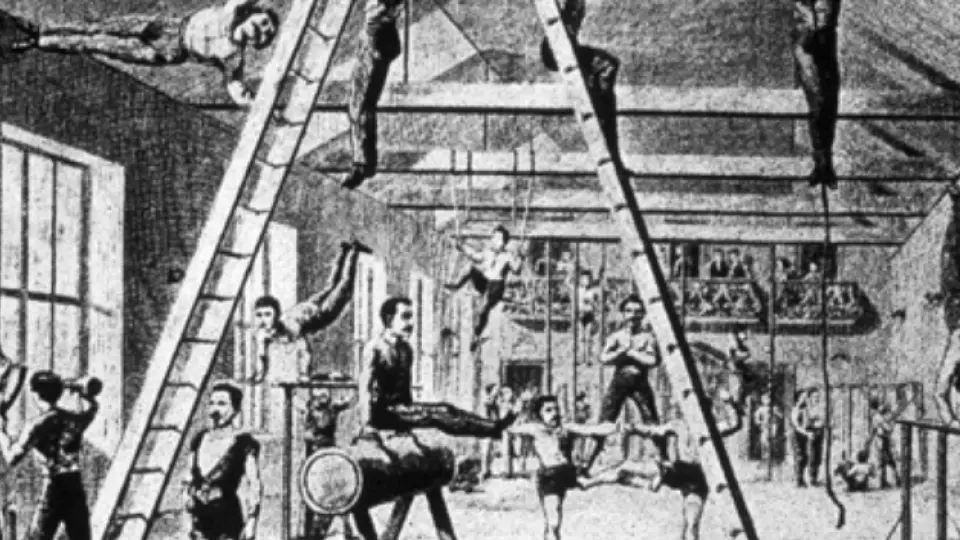










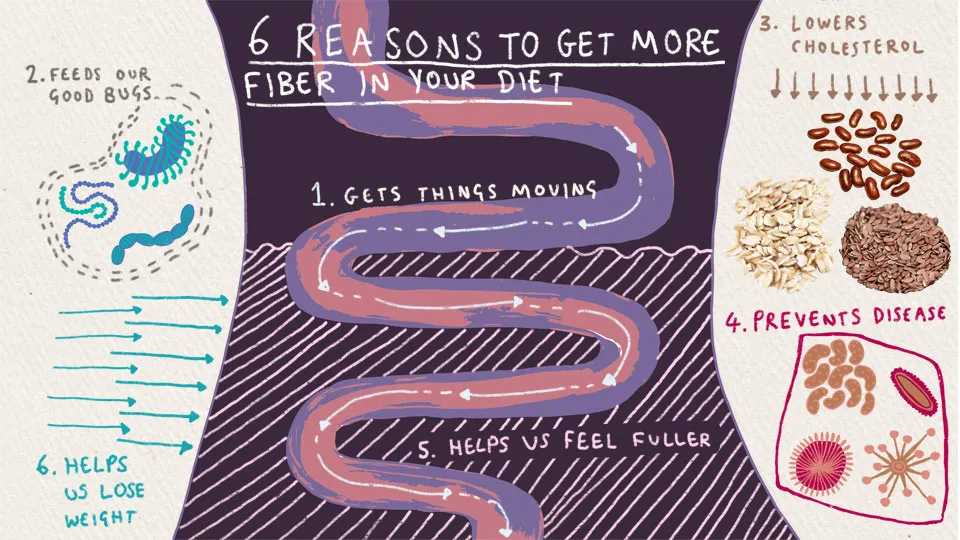
.gif)









.webp)

































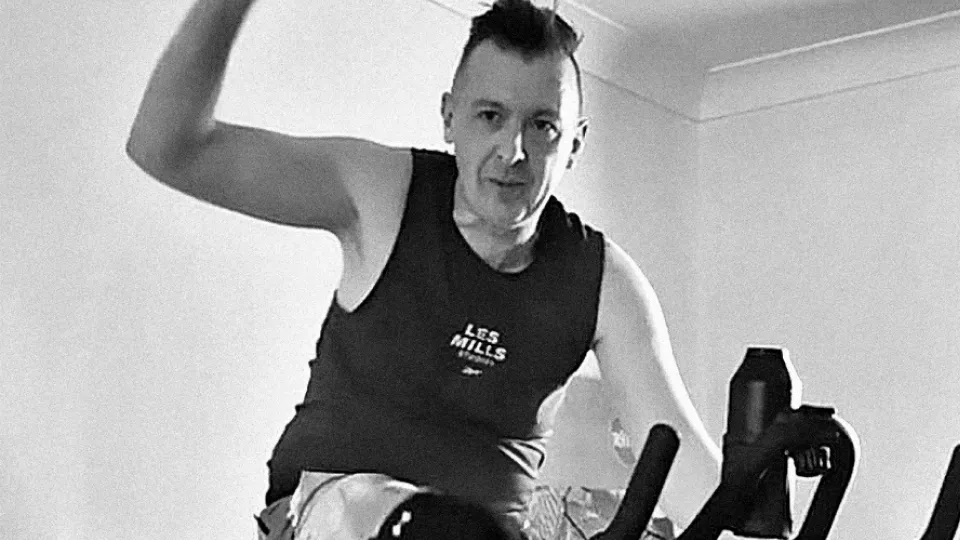













.webp)
















